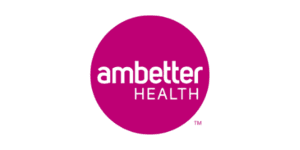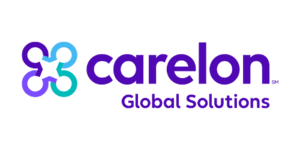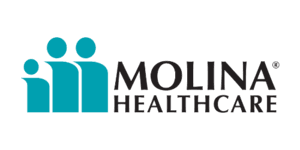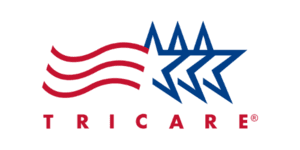










We Accept Most Major Health Insurance
Apex Recovery Tennessee stands out as a trusted provider of outpatient mental health treatment, offering personalized care designed to meet the personal needs of each individual. With a focus on high-quality, accessible services, Apex Recovery Tennessee accepts most major health insurance plans for outpatient mental health treatment, making sure that cost is never a barrier to recovery. Our licensed and accredited behavioral health facilities are conveniently located in Columbia and Brentwood, allowing easy access from cities such as Nashville, Memphis, Knoxville, Clarksville, and Murfreesboro. To simplify the process, the team at Apex Recovery can even verify your insurance benefits on your behalf, providing transparency and peace of mind.
If you or a loved one are seeking caring and professional mental health treatment, Apex Recovery Tennessee is here to help. Contact our qualified team today to learn more about your insurance coverage, discuss outpatient treatment options, or schedule a personalized consultation. Taking the first step is often the hardest, but with Apex Mental Health Recovery by your side, a brighter future is within reach. Call us now at (615) 703 4639 – we’re here to listen.
Check Your Insurance
with Apex Recovery
Apex Recovery accepts insurance to allow for accessible and affordable treatment options. Our dedicated team is available to verify your outpatient coverage details, helping you understand what services your plan includes without added stress.

What is an Outpatient Mental Health Treatment Facility?
An outpatient mental health treatment facility is a center where people can receive professional mental health care without needing to stay overnight. Outpatient facilities provide a range of services, including therapy, counseling, and psychiatric evaluations, designed to address mental health challenges while allowing patients to maintain their daily routines.
Outpatient care offers numerous benefits, such as flexibility and accessibility. It enables people to receive the support they need while balancing work, school, or family commitments. Outpatient mental health disorder treatment facilities also play an important role in ongoing recovery by providing regular therapy sessions and support, allowing for continued progress in managing mental health conditions.
Does Insurance Cover Outpatient Mental Health Treatment?
Yes, insurance does often cover outpatient mental health treatment, although coverage levels can vary depending on your insurance provider and plan. Apex Recovery Tennessee works directly with most major insurance companies and can help verify your benefits, making sure you understand what is covered under your policy.
Insurance coverage can depend on factors like the type of treatment, duration, and insurance policy details. Apex Recovery’s experienced team is here to simplify this process for you. By navigating the complexities of insurance on your behalf, they can allow you to focus on receiving the care you need without unnecessary stress, call us today at (615) 703 4639 to get started.
Check Your Health Insurance Coverage
"*" indicates required fields
Does Insurance Cover Intensive Outpatient Programs (IOP) for Mental Health?
Yes, insurance does typically include coverage for Intensive Outpatient Program (IOP) mental health treatment. However, the level of coverage can differ based on the details of your insurance policy and your provider’s guidelines. Apex Mental Health Recovery is available to assist you in clarifying your benefits and confirming what your plan covers.
Coverage for IOPs may depend on various elements, including the range of services required, the length of the mental health program, and policy-specific criteria. Apex Recovery Tennessee’s knowledgeable team can simplify the insurance process by helping you navigate these aspects, allowing you fully focus on your mental health care.
Does Insurance Cover Intensive Partial Hospitalization Programs (PHP) for Mental Health?
Yes, health insurance does frequently provide coverage for Intensive Partial Hospitalization Program (PHP) mental health treatment. The specifics of coverage, however, depend on the details of your insurance plan and the policies of your provider. Apex Recovery Tennessee is here to review your health insurance and clarify your covered benefits.
Factors like the scope of care, the length of the program, and the conditions outlined in your policy play a role in determining partial hospitalization for mental health coverage. With expertise in navigating insurance complexities, Apex Recovery lets you fully understand your benefits, allowing you to focus solely on your recovery.
How Long Does Insurance Pay for Outpatient Mental Health Treatment?
Insurance coverage for outpatient care, Intensive Outpatient Programs (IOP), and Partial Hospitalization Programs (PHP) often depends on your specific policy. Providers may cover a set number of sessions or a certain duration, with variations based on treatment type and personal needs.
Apex Recovery Tennessee can assist in verifying your insurance coverage for mental health treatment. Dial us today at (615) 703 4639 to discuss your needs, and our qualified team will guide you through the process of understanding your benefits and accessing the mental health treatment you deserve.
Free Mental Health Assessment
Outpatient Care Services in Tennessee That Accept Insurance
Outpatient care facilities provide crucial mental health treatment while allowing patients to continue their daily routines. Many mental health outpatient services in Tennessee accept insurance, allowing for accessible care. Below are locations of Apex Recovery centers that offer comprehensive outpatient treatment:
- Apex Recovery Brentwood: 209 Ward Cir, Brentwood, TN 37027
- Apex Recovery Columbia: 2710 Trotwood Ave STE A & B, Columbia, TN 38401
How to Find Outpatient Behavioral Health Recovery Centers Near Me That Take Insurance
Finding outpatient behavioral health recovery centers that accept insurance in cities like Nashville, Knoxville, and Memphis is necessary for accessible care. Use the methods below to locate a suitable option:
- Use Your Insurance Provider’s Directory: Review your insurance provider’s online directory to find facilities nearby. Search using terms like “outpatient care Nashville” or “mental health Knoxville” for localized results.
- Check SAMHSA’s Treatment Locator: The SAMHSA locator lists verified behavioral facilities nationwide, including options in Nashville, Brentwood, and Columbia. This tool can give you access to trusted care providers.
- Call the Number on Your Insurance Card: Use the customer service number on your insurance card to confirm covered outpatient facilities. Representatives can provide tailored suggestions based on your plan.
- Check the Facility’s Website to see if They Accept Insurance: Visit the websites of potential facilities to verify insurance acceptance. Many centers highlight their insurance policies under FAQs or billing information.
- Contact the Facility and Ask if They Take Insurance: Call directly to confirm if a facility accepts your insurance. This can give you accurate information, saving time during your mental health treatment search.
Benefits of Choosing an Outpatient Mental Health Center in Tennessee
Outpatient mental health centers provide effective treatment while allowing people to maintain their personal and professional commitments. Here are key benefits of choosing outpatient care in Tennessee:
- Flexible scheduling with the ability to live at home: Patients can attend therapy sessions while continuing to live at home, making it easier to balance treatment with daily responsibilities.
- Access to licensed professionals and personalized care plans: Outpatient centers offer care from experienced professionals who create tailored treatment plans to address each individual’s unique mental health needs.
- Lower cost compared to inpatient or residential treatment: Outpatient programs are more affordable, reducing financial strain while delivering thorough care for long-term recovery.
- Ongoing support for recovery and real-world coping skills: Day treatment centers emphasize real-life applicability by combining therapy with skill-building to help patients manage challenges effectively in their daily lives.
- Convenient step-down option after inpatient mental health care: Outpatient care serves as a seamless transition for those who have completed an inpatient program, providing continued support to sustain recovery.
Common Mental Health Conditions Treated in Outpatient Facilities in Tennessee
Depression, Mood Disorders, and Seasonal Affective Disorder
Depression and mood disorders are mental health conditions characterized by persistent sadness, emotional instability, and loss of motivation. Seasonal Affective Disorder (SAD) is a type of depression linked to changing seasons, often occurring in fall or winter. Common mental health conditions such as depression and SAD can significantly impact mood, energy, and daily functioning.
Outpatient facilities in Tennessee address the issues through personalized therapy plans and medication management. Commonly treated conditions include major depressive disorder, dysthymia, and bipolar-related depression. For SAD, light therapy and behavioral interventions are emphasized to combat symptoms effectively.
Anxiety Disorders and Panic Conditions
Anxiety disorders entail excessive worry, fear, or nervousness, often interfering with daily life. Panic conditions, a subset, involve sudden and intense fear episodes, known as panic attacks, that can feel debilitating. Both conditions can manifest physically, causing symptoms like sweating or rapid heartbeat.
Outpatient therapy for anxiety disorder or panic conditions might include cognitive-behavioral therapy and relaxation techniques. Common examples treated include generalized anxiety disorder, social anxiety, and panic disorder. Therapy focuses on helping people manage symptoms and regain a sense of control over their lives.
Bipolar Disorder and Emotional Dysregulation
Bipolar disorder is marked by extreme mood swings, ranging from manic highs to depressive lows. Emotional dysregulation involves difficulty controlling emotional responses, often leading to outbursts or impulsive behaviors. Both conditions can disrupt relationships and daily routines without proper treatment.
Outpatient treatment in Tennessee offers targeted therapies and mood-stabilizing medications to manage such difficulties. Conditions such as Bipolar I Disorder, Bipolar II Disorder, and cyclothymic disorder are commonly addressed. Emotional regulation strategies help restore stability and improve interpersonal functioning.
PTSD, Trauma, and Dissociative Disorders
Post-traumatic stress disorder (PTSD) occurs after experiencing traumatic events, leading to symptoms like flashbacks, nightmares, and emotional numbness. Dissociative disorders, on the other hand, involve disruptions in memory, identity, or perceptions, often stemming from severe trauma.
Mental health outpatient services include trauma-focused therapies such as EMDR and cognitive processing therapy. Patients may seek help for conditions like dissociative identity disorder, acute stress disorder, or complex PTSD. Such interventions aim to reduce trauma-related symptoms and restore a sense of normalcy.
OCD and Related Compulsive Behaviors
Obsessive-compulsive disorder (OCD) is characterized by intrusive thoughts (obsessions) and repetitive behaviors (compulsions) performed to reduce anxiety. Related disorders include compulsive hoarding, skin picking, or hair pulling, which impact everyday life and emotional well-being.
Non-residential treatment provides evidence-based therapies like Exposure and Response Prevention (ERP) and habit reversal training. Conditions treated often include OCD, trichotillomania, and body dysmorphic disorder. Obsessive-compulsive disorder treatment focuses on breaking the cycle of obsessions and compulsions for long-term relief.
ADHD and Behavioral Disorders
Attention-deficit/hyperactivity disorder (ADHD) involves inattention, hyperactivity, and impulsivity that can hinder academic, professional, and social success. Behavioral disorders, like oppositional defiant disorder (ODD), include disruptive patterns of behavior towards authority.
Mental health disorder treatment for these conditions typically involves behavioral therapy and skill-building strategies. Treated diagnoses include ADHD, ODD, and conduct disorder. Therapy aims to enhance attention management, emotional regulation, and positive behavior reinforcement for better daily functioning.
Personality Disorders Including BPD
Personality disorders affect how people perceive themselves and interact with others, often causing enduring interpersonal conflicts. Borderline Personality Disorder (BPD) is characterized by unstable self-image, emotional swings, and impulsivity, impacting relationships and mental health.
Treatment for personality disorders includes dialectical behavior therapy (DBT) and other evidence-based interventions to help with self-awareness and emotional control. Commonly addressed conditions include BPD, narcissistic personality disorder, and avoidant personality disorder, with therapy focusing on improving relational and emotional stability.
Psychosis, Schizophrenia, and Crisis Stabilization
Psychosis encompasses experiences like hallucinations or delusions, characteristic of disorders such as schizophrenia. Such conditions alter one’s perception of reality and require structured intervention to prevent crises. Crisis stabilization addresses immediate mental health emergencies with care.
Mental health outpatient services treat conditions like schizophrenia, schizoaffective disorder, and brief psychotic episodes using antipsychotic medications and supportive therapies. Day treatment programs aim to enhance coping strategies and clarity of thought, helping people achieve functional recovery in their daily lives.
Check Your Insurance Coverage
Health Insurance Providers That Cover Outpatient Treatment in Tennessee
BlueCross BlueShield of Tennessee, Cigna Healthcare, and Aetna offer detailed mental health coverage, including outpatient treatment options. Private health providers support therapy sessions, medication management, and structured programs like IOP and PHP, providing accessible care for people seeking mental health services in Tennessee.
UnitedHealthcare (UHC), Ambetter (from Celtic Insurance), and Oscar Health also accommodate mental health needs through outpatient treatment coverage. They provide access to therapies, personalized care plans, and essential recovery resources, helping members effectively manage conditions like anxiety, depression, and PTSD.
Humana, Molina Healthcare, National General (an Allstate company), and Farm Bureau Health Plans prioritize mental health care by covering outpatient treatments. Private insurers such as those mentioned, focus on inclusive support, addressing a variety of mental health needs with options for flexible, affordable, and effective care in Tennessee communities.
Types of Outpatient Treatment Programs Covered by Insurance
Outpatient treatment programs provide diverse and effective mental health care options for people seeking flexible arrangements. Non-residential programs cater to various needs, offering therapy, medication management, and specialized treatments. Below are some outpatient program types typically covered by insurance.
Individual and Group Therapy Sessions for Mental Health Support
Individual and group therapy sessions provide a safe space for people to address emotional challenges and develop coping strategies. Individual therapy focuses on one-on-one support, while group sessions promote peer interaction and shared experiences.
Outpatient therapy options often treat conditions like depression, anxiety, and grief. For example, group therapy may focus on social anxiety, allowing patients to practice communication in a supportive setting.
Intensive Outpatient Programs (IOP) with Flexible Scheduling
Intensive Outpatient Programs (IOP) offer structured mental health support while allowing patients to maintain work or home responsibilities. IOP’s typically involve multiple weekly therapy sessions to help with consistent progress.
Intensive outpatient programs are beneficial for managing conditions such as mood disorders or substance use disorders. They provide flexibility without compromising on intensive, focused mental health treatment, making recovery accessible and practical.
Partial Hospitalization Programs (PHP) for Day Treatment Needs
Partial Hospitalization Programs (PHP) are structured day treatment programs providing comprehensive support for people needing more care than standard outpatient services. With daily therapy sessions and medical monitoring, PHP is a step below inpatient care.
Partial hospitalization programs commonly address issues like severe depression, bipolar disorder, or complex PTSD. Day treatment programs offer thorough intervention while allowing patients to return home each evening.
Medication Management Appointments with Psychiatrists or Providers
Medication management appointments allow for patients to receive the right psychiatric medications and dosages to support mental health recovery. Psychiatrists or other providers work closely with patients to monitor progress and adjust treatment as needed.
Conditions such as schizophrenia, ADHD, and anxiety disorders benefit from medication management. Regular assessments provide opportunities to fine-tune treatment plans for maximum effectiveness.
Cognitive Behavioral Therapy (CBT) in Outpatient Settings
Cognitive Behavioral Therapy (CBT) is a widely used, evidence-based treatment helping people identify and reframe negative thought patterns. This approach empowers patients to overcome emotional and behavioral challenges.
CBT is effective for treating conditions like OCD, depression, and panic disorder. Outpatients learn practical strategies to address and reduce symptoms in everyday life.
Dialectical Behavior Therapy (DBT) for Emotional Regulation
Dialectical Behavior Therapy (DBT) focuses on teaching skills for managing intense emotions and improving relationships. It integrates mindfulness and behavioral strategies to enhance emotional stability.
DBT effectively treats conditions like Borderline Personality Disorder and emotional dysregulation. Patients gain tools to manage stress, avoid impulsive actions, and improve their overall well-being.
Family and Couples Counseling Covered by Insurance Plans
Family and couples counseling focuses on repairing and strengthening relationships while addressing shared challenges. Therapy sessions encourage communication, conflict resolution, and mutual understanding within a family or relationship context.
This service is particularly helpful for families dealing with addiction, behavioral disorders, and trauma. Counseling creates a supportive environment for collective growth and healing.
Evening Outpatient Mental Health Treatment Options Available
Evening outpatient programs provide flexible scheduling for people with daytime commitments. Mental health outpatient programs cater to working professionals, students, or caregivers seeking accessible mental health support.
Conditions like anxiety, depression, and work-related stress are often addressed in evening schedules. This option allows people to prioritize mental health care without disrupting daily routines.
How to Get Insurance to Pay for Mental Health Day Treatment
The simplest and most stress-free way to manage insurance for mental health day treatment is to contact Apex Recovery. Our experienced team will verify your coverage levels and manage the entire process, allowing you to focus on your well-being.
Call Apex Recovery Tennessee today at (615) 703 4639 or fill out the convenient form on this page. Our professionals are ready to assist you in understanding your insurance benefits and getting started on your treatment plan – it’s okay to ask for help, we’re here to support you.
- In 2023, 37.3% of adults in Tennessee reported symptoms of anxiety or depressive disorders, highlighting the growing need for accessible outpatient mental health services.
- Private residential rehabs in Tennessee have increasingly integrated outpatient programs, offering tailored care that bridges the gap between intensive treatment and everyday life.
- The number of Tennesseans seeking substance use disorder treatment doubled from 2009 to 2019, reflecting increased access and awareness of outpatient and other treatment options.
- Tennessee’s outpatient treatment programs often integrate evidence-based therapies, such as cognitive behavioral therapy, which is a cornerstone of effective recovery.
- Tennessee’s drug overdose death rate rose to 56.6 per 100,000 in 2021, emphasizing the critical role of outpatient services in addressing substance use disorders.
